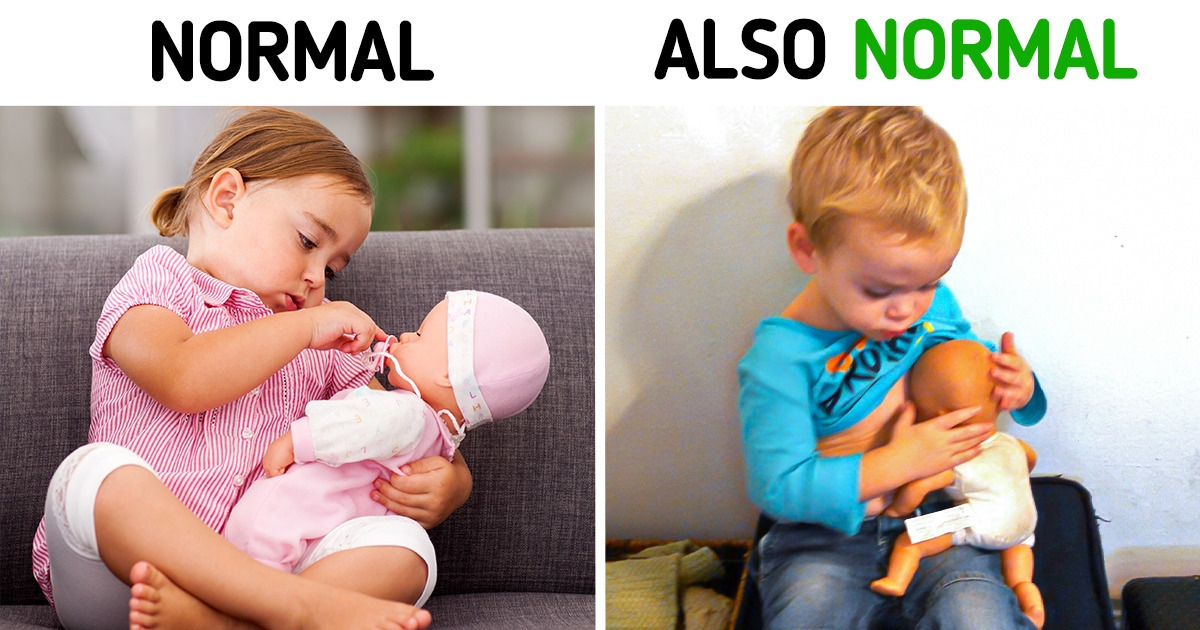10 Stories That Prove Kindness Is the Backbone of Humanity


Many parents can tell a difference in their baby boy’s and baby girl’s behavior. For example, some believe that girls learn how to talk faster and, in general, are more emphatic than boys. Others say that boys are more sensitive and need more attention than their sisters. Of course, most of these beliefs are based on people’s own experiences. But let’s find out what researchers say about all these things.
Girls are better at social understanding and are more sensitive to emotional expressions than boys. They read deeply into people’s emotions and are better at feeling what is happening in the family. Studies show that girls are more interested in reading faces while boys are more interested in the physical-mechanical mobile.
Apparently, girls learn how to read people and express their own feelings and emotions much earlier, and they do it really well. And girls show more empathy. Boys, of course, also feel all of these things, but it won’t be possible to see these emotions on their faces very often. Boys are more simple-minded and try to hide their feelings from others.
In reality, babies do not distinguish between toys for boys and girls. Studies show that boys love dolls too, which is absolutely normal. Girls also enjoy playing with “boyish” toys like “trucks” and “houses.” Their games and activities may change according to their age but not necessarily their gender.
Also, their preferences may change due to the pressures from society, their peers, and gender-specific marketing. Playing has a central role in a child’s development. It allows them to practice different roles, experience numerous emotions, and try many new things. So it could be wise to help remove the stereotype if your child has a toy preference that is contrary to the “norm.”
Some researchers have found that boys are more likely to be late talkers than girls. Girls often have larger vocabularies and love long conversations very early. This is because girls simply have better developed those parts of their brain which are responsible for speech. Therefore they show slightly better results in early communication skills.
But gender may only explain a tiny part of the differences in children’s verbal skills. The more critical things include socioeconomic factors and opportunities. They also influence how soon kids will talk and how large their vocabulary will be.
Boys are more active even before they are born. They maintain this level of activity after birth. Researchers have found that boys are more likely will be seen running, jumping, climbing trees, and playing ball outdoors. While girls are prone to choose more quiet games and prefer to play at home. However, it’s always good to involve all children in different physical activities both indoors and outdoors.
While most girls begin to learn to use the toilet at the age of 22 to 30 months, boys may need 6 months longer. On average, when it comes to potty training, girls can usually master it by 29 months, and boys can take up to 33 months to achieve this. So be ready that the diaper stage will last longer if you have a boy and will end sooner if you’re raising a little girl.
Of course, all babies cry a lot. But at the age of 6 months, boys show more frustration than girls do. At 12 months, they show a much stronger reaction to negative issues.
Boys usually are moodier and require more attention. This is often explained by the fact that they have a more robust research instinct and are more likely to get into situations that may lead to pain and frustration.
Little gentlemen are more emotional and passionate than girls. They may get in fights and disputes over different things. And testosterone plays a key role in this behavior.
Girls seem to be less aggressive and more socially capable than boys. The latter simply have a larger amygdala which is the center for experiencing and recollecting emotions. And the display of their emotions may be stronger in the presence of their parents, but they tend to play aggressively with their peers or show strong emotions towards other adults too.
Have you noticed any differences between little boys and girls yourself? Maybe some friends have shared their own experiences with you?











